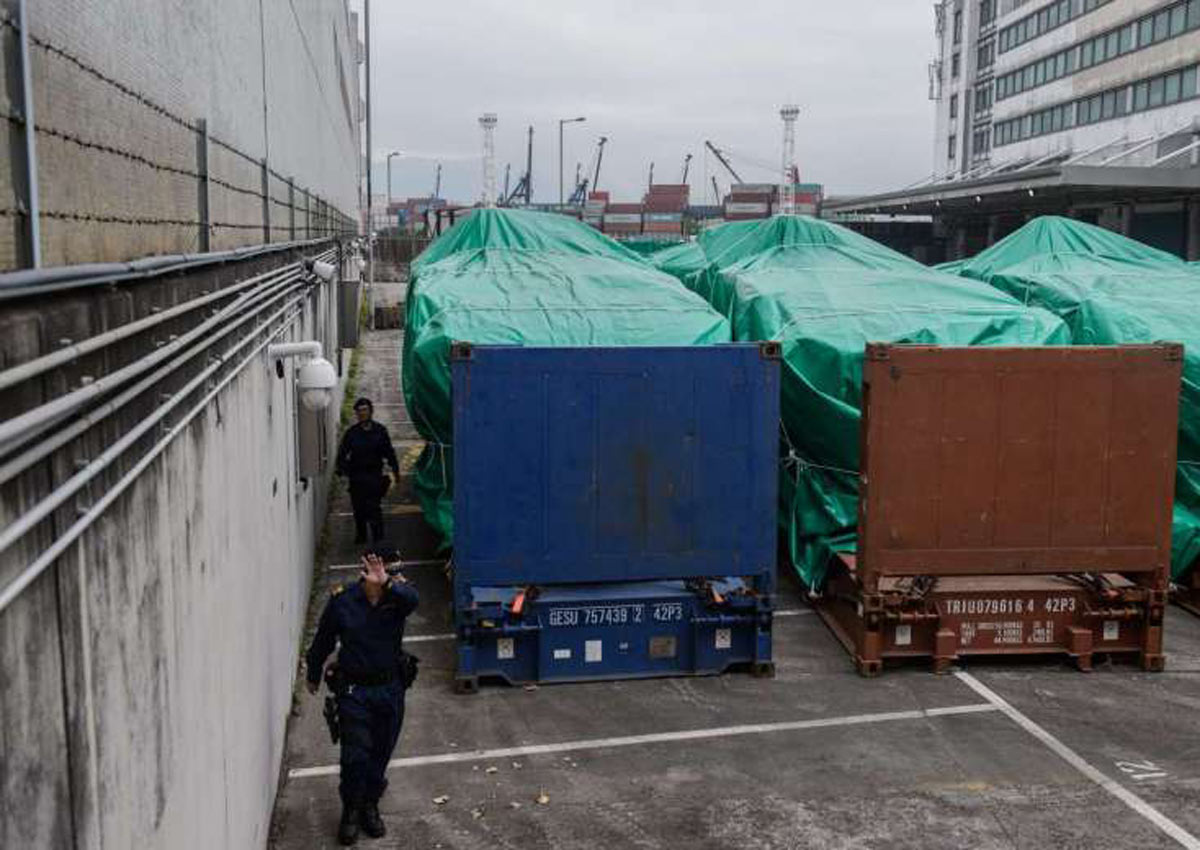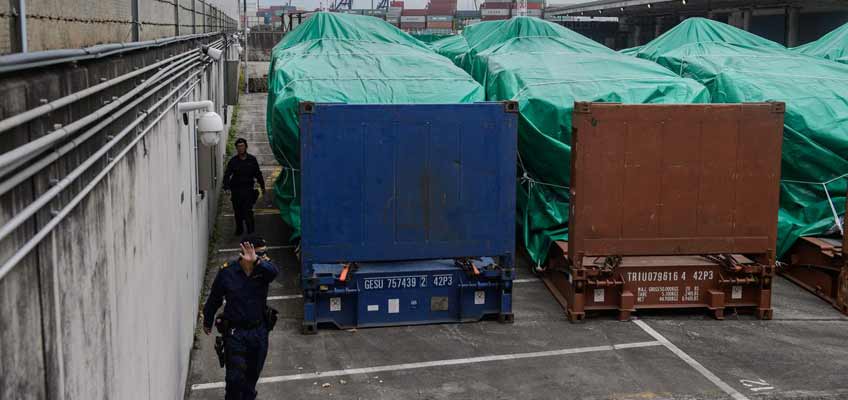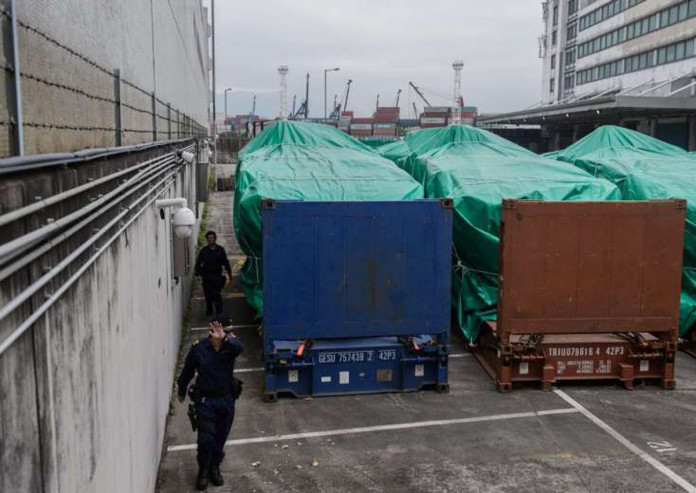UPDATE: The Hong Kong Customs have added security guards who are stationed 24-hours at the site housing the seized Terrex infantry carriers.
In a statement, the Ministry of Defence (Mindef) also revealed that the Hong Kong Customs and Excise Department had not yet given formal reasons for the detention of the vehicles. This follows a meeting between APL, the carrier contracted to transport the vehicles, and the Hong Kong authorities on Nov 29.
SAF said that APL and the Hong Kong Customs will be having another meeting on Thursday (Dec 1). “We have advised APL to give its full cooperation to the Hong Kong authorities in order to expedite the recovery of the SAF’s assets,” it added.
The seizure of nine Singapore Armed Forces (SAF) armoured vehicles and equipment by the Hong Kong Customs authorities has drawn the attention of Singaporeans on social media.
Most expressed the hope that the nine Terrex infantry carriers would be released soon.
But a small minority wants Singapore to relook its position on issues involving China, a call that drew strong responses from many who urged the Government to stand its ground.
The vehicles were on an APL ship bound for Singapore, after a military exercise in Taiwan, when they were seized during the vessel’s transit in Hong Kong.
Observers said a key learning point from the incident should be that, when it comes to disputes with another country, Singaporeans must stand together in protecting the country’s interests and sovereignty.
Many online stressed that Singapore – and its people – should not be seen as pushovers.
Read Also: China lodges protest over SAF vehicles
SAF armoured vehicles seized in Hong Kong port
Said Facebook user Robin Liu: “We have to be united as a nation, as a people, behind our government to let China know that we cannot be intimidated or bullied.
“We want to be friends with China, but it should be based on mutual respect and equal standing as sovereign nations dealing with each other, and not on a big brother to a younger brother footing.”
The seizure has ignited much debate that became more intense after China expressed its unhappiness on Monday over the incident, and called on Singapore to adhere to the “one China” policy.
Opinions, however, span two extremes, defence analyst Bernard Loo noted.
Some want Hong Kong to return the vehicles with no fuss while others argue that Singapore should “acquiesce to everything China demands”.
“Both are probably misguided at best,” said Associate Professor Loo of the S. Rajaratnam School of International Studies (RSIS).
Read Also: SAF deploys team to Hong Kong to secure seized armoured vehicles
He sees the situation playing out thus: “Yes, the vehicles were routed through Hong Kong. Yes, the Hong Kong port authorities have every right to inspect the cargo.
“But Singapore has the sovereign right to train wherever it is welcome, and training in Taiwan does not compromise our acceptance of the ‘one China’ policy.”
Singapore, he added, is likely to stand firm on this.
The analysts also rejected calls for Singapore to adjust its positions on issues involving China, including an online petition – signed by 39 people in five days – that wants the Government to apologise to China.
Said Dr Alan Chong of RSIS: “You don’t want to set a precedent where you openly cave in to another state’s demands.”
Friction is inevitable in international relations, he pointed out.
Observers also stressed that Singapore, as a small country, cannot be seen as weak.
Read Also: SAF vehicle seizure: Use of shipping lines by militaries the norm in peacetime, says Ng Eng Hen
Workers’ Party MP Pritam Singh wrote on his Facebook page: “When Singapore is pushed around in the international realm, or belittled unceremoniously usually as a result of our size, our opponents do so with their interests in mind, and – for those with more nefarious intentions – to drive a wedge among Singaporeans.”
The only thing Singapore and its people should take away from this episode, he added, is a stronger sense of nation and identity.
“For it is in our destiny as a small state that similar spats will inevitably come to the fore again… But (it) is far from inevitable that Singaporeans are destined to be divided.”
Political observer Bilveer Singh of the National University of Singapore cites other differences that Singapore has had with big countries.
These include the Michael Fay caning incident with the United States in 1994, and then Deputy Prime Minister Lee Hsien Loong’s 2004 trip to Taiwan that attracted Chinese opposition.
Singapore should also not change course at the request of Chinese leaders or opinion makers, he said.
“We are not a Chinese province and that must be made known clearly. This is not the Third China and, on these principles, we must never, ever compromise,” he said.

This article was first published on December 1, 2016.
Get a copy of The Straits Times or go to straitstimes.com for more stories.








